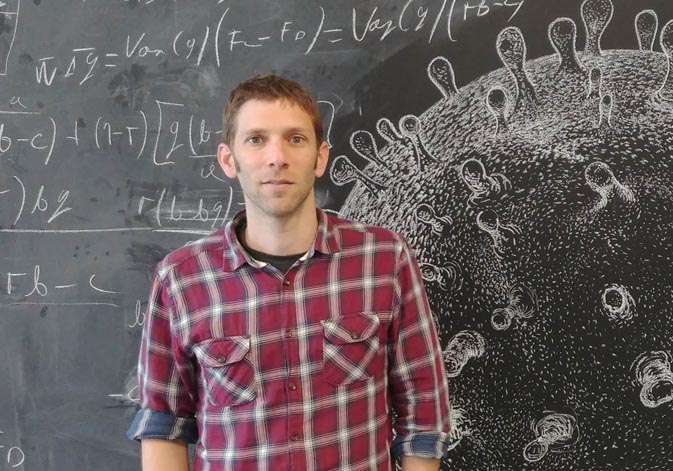Users
Social media
- More details here...
- Address
Parc Científic de la Universitat de València C/
Catedrático Agustín Escardino, 9
46980 Paterna (Valencia) Spain - Email:
iu.i2sysbio@uv.es - Phone:
(+34) 963544810
- Address
Links
They demonstrate for the first time how some proteins can modulate the evolution of others

Investigation
They demonstrate for the first time how some proteins can modulate the evolution of others

Ron Geller, researcher at the Institute of Integrative Systems Biology (I2SysBio), a joint center of the University of Valencia and the CSIC, in collaboration with North American research groups, has shown that the chaperone protein Hsp90 influences other proteins, which it helps to fold, telling them which mutations are tolerated in their sequences. The work has studied the evolution of proteins in the poliovirus and explains what steps these follow through new mutations.
The experiment was published yesterday in the journal Nature Communications, and the chaperone protein Hsp90 was used. Its functions are to help other proteins fold properly, stabilize them in situations of hyperthermia, help in the degradation of other proteins and also stabilize others involved in the growth of some tumors. For this reason, Hsp90 inhibitors are being investigated as anticancer drugs.
The study has determined how chaperone proteins influence the evolution of the proteins they help fold, an issue that until now was uncertain. The experiment demonstrates for the first time how chaperones influence the general evolution of some proteins in a very specific way, helping to select some specific types of mutations, but instead rejecting others.
The research group has selected the poliovirus as an object of study to observe the response of its proteins to the effects of Hsp90. This virus only has eleven proteins, and it also has a great evolutionary capacity, a short replication period (eight hours per cycle), a high mutation rate and a large population number (1,000 million per milliliter).
The research team is made up of Ron Geller, from the Institute of Integrative Systems Biology; Sebastian Pechmann, from the University of Montreal; Ashley Acevedo, from Rockefeller University in New York; Raul Andino, from the University of San Francisco; and Judith Frydman, from Stanford University.
The research has been funded by the Ministry of Economy, Industry and Competitiveness (MINECO) through Ramón y Cajal grants and a scholarship awarded to Judith Frydman by the National Institute of Allergy and Infectious Diseases (NIH) of the United States.
Complex biological systems
The Institute of Integrative Biology of Systems (I2SysBio), a joint center of the Universitat de València-CSIC, is dedicated to the study of complex biological systems, especially microorganisms, with applications mainly in biomedicine and biotechnology. The center works through an innovative public-private research model and is located in the Science Park of the University of Valencia, on the Burjassot-Paterna campus.
Article:
Ron Geller, Sebastian Pechmann, Ashley Acevedo, Raul Andino & Judith Frydman: "Hsp90 shapes protein and RNA evolution to balance trade-offs between protein stability and aggregation." Nature Communications volume 9, article number: 1781 (2018) doi: 10.1038/s41467-018-04203-x
Caption gallery:
Examples of mutations enriched with the poliovirus protein under normal conditions (in blue) or Hsp90 (in red)
Images:




